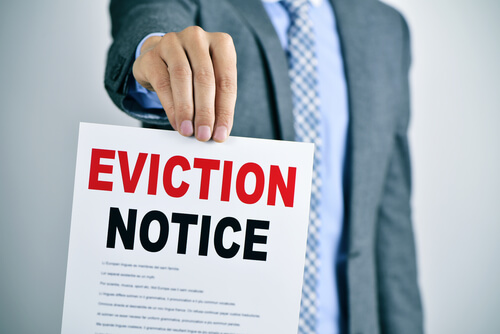Eviction Attorney Miami: Your Key to a Smooth Rental Experience
Eviction Attorney Miami: Your Key to a Smooth Rental Experience
Blog Article
Comprehending the Role of an Eviction Attorney in Property Management Issues
The function of an expulsion attorney is commonly taken too lightly in the world of property monitoring, yet their competence can be crucial in settling tenant disagreements efficiently. These lawyers browse the complex landscape of expulsion legislations, ensuring that property owners remain certified with policies while protecting their interests. From document prep work to court room depiction, expulsion legal representatives enhance what can be a daunting process. Nonetheless, the landscape of eviction law is fraught with obstacles that can make complex also the most straightforward instances. Recognizing these complexities is essential for any kind of residential property manager going for successful end results.
Importance of Expulsion Lawyers

In addition, eviction attorneys provide crucial support in preparing and submitting the necessary legal records, such as notifications to leave and court filings. Their expertise can significantly improve the expulsion procedure, enabling home managers to concentrate on various other functional aspects of their obligations. They can represent home supervisors in court, offering a solid situation to copyright the residential property proprietor's civil liberties and passions.
In cases of disputes, having legal representation can be pivotal in discussing negotiations or moderating disputes, possibly conserving time and resources. Ultimately, engaging an expulsion legal representative not only aids in the effective administration of building but likewise functions as a safeguard versus possible lawful consequences, making certain that residential or commercial property management techniques remain both legal and effective.
Trick Responsibilities of Expulsion Lawyers
Expulsion attorneys play an important role in the home administration process by looking after various legal duties related to lessee expulsions. Among their main tasks is to supply lawful guidance to building supervisors and landlords, making sure conformity with state and neighborhood regulations pertaining to occupant civil liberties and evictions. This consists of reviewing lease contracts to determine prospective violations and grounds for eviction.
Additionally, expulsion lawyers prepare and submit the necessary legal papers to start expulsion proceedings. They draft eviction activities, grievances, and notifications, ensuring that all documentation fulfills lawful standards. In addition, they stand for landlords in court during eviction hearings, providing proof and disagreements to sustain their situation.
Expulsion lawyers likewise play an essential function in discussing negotiations in between proprietors and lessees, typically seeking to fix conflicts agreeably prior to they rise to court. Past expulsions, they may assist in matters associated to renter damages, unpaid rent, or lease violations. In general, eviction attorneys offer vital legal assistance that aids residential or commercial property managers navigate the complexities of tenant expulsions while decreasing possible legal risks and guaranteeing a much more efficient residential or commercial property management procedure.
Lawful Framework Governing Evictions
The lawful framework governing expulsions is a complicated interplay of federal, state, and neighborhood legislations developed to protect both landlords and occupants. At the federal degree, the Fair Real estate Act restricts discriminatory techniques in housing, influencing expulsion procedures and ensuring equivalent treatment for all lessees. Furthermore, the Servicemembers Civil Alleviation Act offers defenses for military employees against expulsion while on energetic task.
State laws additionally specify the eviction procedure, consisting of the reasons for eviction, notification requirements, and the timeline for process. The majority of states need landlords to supply written notification specifying the factor for eviction, such as non-payment of rent or lease infractions. This notification duration varies significantly, with some states permitting as little as 3 days and others up to 1 month.
Neighborhood ordinances may introduce extra guidelines, such as lease control actions or specific renter securities, which property managers have to adhere to. These legislations jointly produce an organized procedure that intends to stabilize the civil liberties of homeowner with renter protections. Recognizing this lawful structure is crucial for expulsion legal representatives, as it informs their techniques and makes sure conformity with the myriad of guidelines controling expulsion instances.
Usual Obstacles in Expulsion Situations
Navigating the intricacies of expulsion regulation provides a number of difficulties for property owners and their attorneys. One significant hurdle is guaranteeing compliance with state and neighborhood laws, which can differ commonly and alter frequently. Failing to comply with these legislations can cause hold-ups or dismissals of eviction process, requiring property owners to reactivate the procedure.
An additional challenge is the need of providing sufficient documents to support the expulsion. Landlords must preserve exact documents of lease contracts, settlement histories, and any type of document with tenants. Inadequate or improperly arranged documentation can weaken a property owner's instance, making it essential to have a systematic and complete approach to record-keeping.

Ultimately, these challenges highlight the importance of understanding the legal landscape and preparing adequately to navigate the expulsion process successfully, making the function of an eviction legal representative vital in these scenarios. - eviction attorney miami
Benefits of Hiring an Eviction Lawyer
Employing discover here an expulsion lawyer can substantially enhance the frequently intricate and stressful process of getting rid of a lessee from a rental building. Among the primary benefits is their knowledge in navigating the legal landscape bordering expulsions. They are fluent in regional regulations and regulations, making sure that all procedures are adhered to appropriately to avoid expensive hold-ups or prospective lawful risks.
Additionally, expulsion attorneys can deal with all essential paperwork, from filing the first eviction notification to standing for property owners in court. Their experience allows them to prepare a solid instance, increasing the likelihood of a desirable outcome. This legal assistance not just saves time however likewise reduces the psychological burden often related to expulsion procedures.
Moreover, an expulsion lawyer can supply beneficial suggestions on tenant-related problems, assisting property managers comprehend their responsibilities and civil liberties (eviction attorney miami). They can also mediate conflicts, possibly bring about a resolution without the need for court intervention
Conclusion
In summary, expulsion legal representatives play an important duty in residential or commercial property monitoring by ensuring conformity with legal requirements and safeguarding landlords' legal rights. Their knowledge in browsing the intricacies of expulsion legislations promotes a more efficient resolution of tenant conflicts. By preparing required documents, standing for homeowner in court, and bargaining settlements, eviction lawyers not just simplify the eviction process yet also alleviate the threats connected with prospective legal challenges. Their involvement inevitably improves the general efficiency of property Recommended Site management strategies.
A seasoned eviction lawyer helps residential property supervisors recognize regional and state legislations that control occupant legal rights and expulsion treatments, making sure conformity and decreasing the risk of expensive lawful errors.
Eviction lawyers play a critical function in the residential property monitoring procedure by overseeing numerous lawful obligations associated with tenant evictions. In general, expulsion attorneys offer vital legal support that aids residential property managers navigate the intricacies of lessee evictions while lessening potential lawful threats and making sure a more reliable property management process.

By preparing essential paperwork, standing for residential or commercial property owners in court, and bargaining negotiations, eviction attorneys not only streamline the expulsion process yet also alleviate the risks connected with possible legal challenges.
Report this page